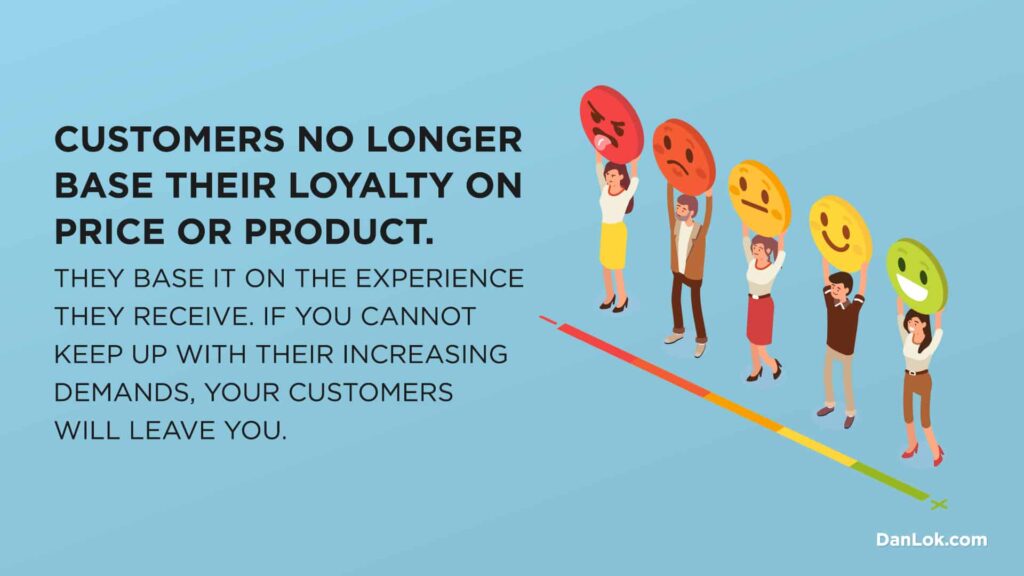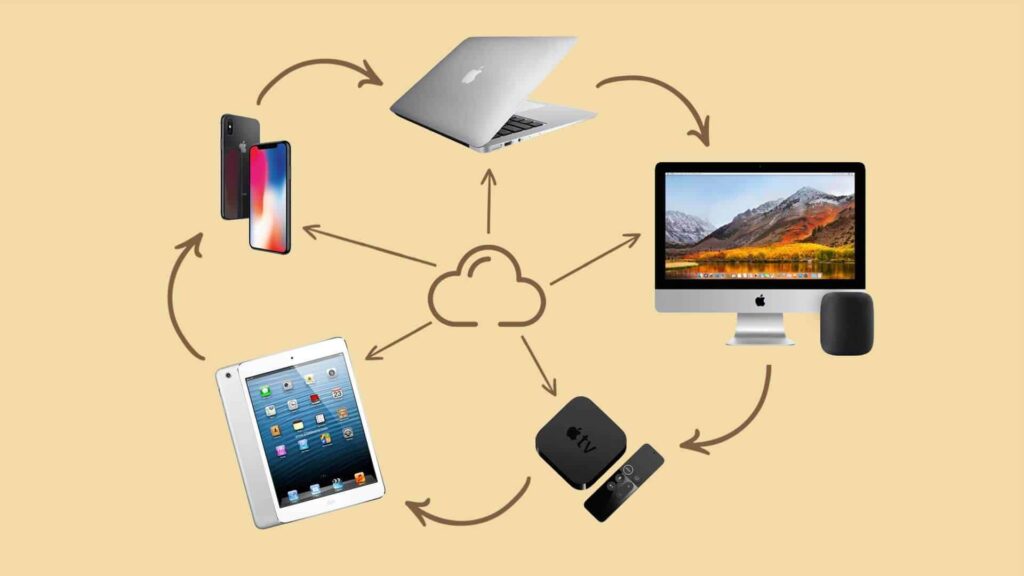In a business, your sales process is one of the key structures that determines your revenue growth. It’s a proven series of repeatable steps from start to finish, outlining the closing of a deal.
Unfortunately, many business owners don’t have a proven sales process. In fact, ⅔ salespeople don’t follow a proven sales process when doing business. They use spur of the moment strategies to try to close deals, which never works well.
If you don’t plan for success, you’ll never achieve it. Companies that have a proven sales process outperform those that don’t, and having a proven sales process will help in closing more deals and securing more customers. If your sales aren’t doing so well and you’re looking to change things up, here are 7 Costly Mistakes to avoid in your sales process.
1. You Use Old Traditional Methods
The old methods of doing sales involve talking to a prospect, telling them the benefits of your product and then following up with them if they aren’t ready to buy. If you’ve ever tried this approach, you would soon discover it doesn’t work very well.

As time goes on everything evolves. Your old proven sales process may have worked before, but in today’s time it is now obsolete and replaced by newer strategies and methods. Customers can smell a salesman from a mile away, and if they feel they are being sold to, will quickly back off and go somewhere else.
Your prospects are getting smarter every year, as they encounter more and more salespeople every single day. They’ve been exposed to dozens of different marketing and sales techniques, and know them well. If you’re trying the same old tricks to get them to buy, they’ll know it immediately.
“The customer is not a moron. She’s your wife.” – David Ogilvy
The customer is not a moron. She's your wife. Share on X2. You Have Salespeople, Not Closers
There are two kinds of people in sales: Salespeople and closers.
Salespeople are concerned only with getting the sale. To salespeople, they only succeed when the customer buys. And in order to make that happen, they’ll use every trick in the book.
However, your customer has been sold to so many times they know exactly what you are doing. If you try to use aggressive selling tactics or push them into buying something they aren’t ready to buy, you’ve just lost a potential customer.
Closers are like salespeople, except they don’t try to sell anything. Instead of doing what every other salesperson in the market does, the closer simply does two things: Ask questions and listens.

By asking deep questions and listening carefully, a closer is able to lead the conversation and the prospect to a close. Closers are in no rush to make a sale, and understand that if a prospect isn’t ready to buy now, they might do so in a few weeks. By not trying to push a sale, they leave an opportunity open for future business.
3. Unsure Of Your Desired Customer
Do you know what your optimal customer is like? Their needs, desires, objections, fears and worries?
Your desired customer is the type of customer you are targeting. In today’s world, people are bombarded 24/7 with advertisements, marketing tactics and commercials. Especially with the rise of technology and social media sites like Facebook, they see an ad every single day.
If your ad does not cater to their demographic specifically, it will be ignored. A banner targeting ‘pet owners’ will perform much worse than a banner that specifically targets ‘cat lovers’. Get very specific on who your customer is, and know them inside and out. That way, you’ll be able to handle any objections they have before they even open their mouth.
4. Your Leads Are Cold, Not Warm
Cold leads are every salesperson’s nightmare. Picking up the phone to dial a number to someone who’s never heard of you is going to frustrate both you and the person you are calling.

Warm leads on the other hand, are people who have already shown interest in your product or service. These people are much more likely to be more receptive towards your advances, as they are expecting it. Research shows that cold leads only have a 1-3% success rate. With warm leads, this number jumps up to 40%.
Instead of calling a stranger and interrupting their day, have them contact you instead. Remember that if you are calling them, you are a salesperson. But if they are calling you, you are the authority figure.
5. Neediness
If you are too eager to close a sale, your prospect can smell it. Neediness is one of the biggest turn offs to a prospect in business. It implies that you are desperate to make the sale, and will influence you to use pushy tactics in order to do so.
Neediness comes from not knowing your own value. During a prospect interaction, you want to be qualifying the prospect, not the other way around. You should be trying to find out if they can afford your services and if they’d be a good fit to work with. If all you think about is closing the sale, you might just get it – and end up with a difficult client.

When it comes to closing deals, have the mindset that it’s okay to walk away. You don’t have to close every single person you meet.
Have the mindset to walk away from a deal. It's okay to say no to a bad fit. Share on X6. Spending Too Much Time On Trivial Tasks
You make money when you close. And to close a deal, you need to use that time to be selling. The problem is that most sales teams are spending too much time on tasks other than selling.
Things like data entry, sending emails and making phone calls (especially cold calls), take up valuable time. Instead of wasting time on these trivial tasks, delegate the task or better – automate it. Invest in software that automates these tasks, freeing up your time to sell and generate revenue. The amount of time saved that can be used to interact with prospects and build relationships far outweighs the investment required. Leverage time as your most important asset, as money can always be made back.
7. No Commitment And Poor Closing Ability
“I need some time to think about it.”
“Okay sure, when you’ve thought about it please get back to me.”
How many times has a prospect said this?
99% of the time when a prospect says they want to think about it they are saying no. They just don’t want to hurt your feelings, and instead say they need some time.
Think about it like this: If I offered you a million dollars right now, what would you say? Most likely you would respond with HELL YES! Could you imagine someone saying “I’ll think about your offer”? It makes no sense. If your prospect is truly interested in what you have to offer, there should be no hesitation. If they are hesitating, either you as a salesperson are not selling the product well enough or the prospect is not interested.
In fact, poor closing ability is one of the biggest reasons why sales are lost. 12% of salespeople are excellent, 23% are good, 38% are average, and 27% are poor. Every sale that is lost amounts to thousands in lost revenue a month, hundreds of thousands a year, and millions over a prolonged duration. Your proven sales process may bring results, but if your salespeople don’t know how to close, it is useless.

In the rare situation that a prospect truly needs time to discuss it with a business partner, you can ask them if it’s okay to follow up in a few days time. Set the date and time, to let them know you are expecting them to make their decision by then. By making your prospect give you a commitment, they are much more likely to follow through instead of wasting your time.
The One Thing Business Owners Lack In Their Sales Process
Business owners focus too much on their sales process. If they aren’t making enough revenue, they look to bring in more leads. If prospects aren’t willing to buy, they offer incentives like discounts and special deals. Some even go so far as to completely redo their entire sales process from start to end.
They focus all their time on these things, but forget the most important rule of sales. In sales it’s all about closing. Instead of trying to bring in more leads, increase your closing ratio. The more deals you close, the more revenue you bring in. The more revenue there is, the faster your business can grow. And the more your business grows, the more freedom you have to expand on things and try out new strategies.
Most business owners don’t realize it’s their sales teams ability to close that affects the sales process. They think the process needs to be changed, when in reality it’s all about the salesperson. Your sales team should be closing a majority of the deals they do – if they aren’t they need help.
Be a High Ticket Closer, Not A Salesperson
If you are unsatisfied with your sales team’s closing ratio, focus on being a closer instead of acting as a salesperson.
A closer does not sell. Instead, they lead the conversation in a way to get the prospect to close themselves. They do this by doing 4 things:
1) They find out your needs
They do this by asking questions and finding out what you’re looking for. This is known as pre-qualifying, to see if you and your prospect would be a good fit.
2 They find out your problems
The second thing closers do, is identify problems. For example, if you are selling B2B lead generation services, you want to find out how their leads are currently doing. Are they bringing in enough leads? Do they need warmer leads? Are they targeting the right people? Closers find out their problems so they know what to focus on.
3) They paint a picture
Once you find out their needs and problems, you paint a picture. “Could you see how X service could help you bring in more leads?” “How would warm leads help you with your closing ratio?” By painting a picture for them to imagine, you are allowing them to visualize the outcome of what would happen if they were to work with you, leading them closer to where you want them to be.
4) They close the deal
You know their needs. You’ve identified their problems. And you’ve shown them how your product or service can help.
If your prospect is truly interested, at this point they should already be ready to buy. There’s only one thing left to do: Close the deal. This is done by asking them one simple question.
And this question, is one that many inexperienced salespeople mess up – resulting in the entire conversation going nowhere. That’s why over the years, I’ve put together something called ‘The Perfect Closing Script’, that outlines the entire sales process and what to say from beginning to end. Forget old school sales techniques, hard selling and proving to the prospect why you are the best choice. The Perfect Closing Script turns the tables and makes the prospect do the talking – they give you the answers to their own questions. If you want to know more about the Perfect Closing Script, click here to learn more now.


















